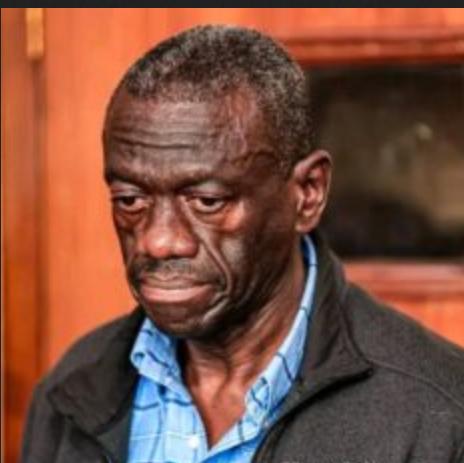By Twink Jones Gadama
The ongoing calls for the release of Kizza Besigye, a prominent opposition leader in Uganda, have reverberated across the nation and beyond, yet the military’s steadfastness in maintaining his detention raises critical questions about the dynamics of power, governance, and human rights in the country.
Despite the deteriorating health of Besigye, the military and the government, led by President Yoweri Museveni, appear unmoved by the mounting pressure from civil society, international organizations, and the general populace.
This situation invites a deeper examination of the underlying factors that contribute to the military’s unwavering stance and Museveni’s reluctance to intervene.
To begin with, it is essential to understand the historical context of Uganda’s political landscape.

Since coming to power in 1986, Museveni has cultivated a political environment characterized by a strong military presence and a systematic suppression of dissent.
The military has been a crucial pillar of Museveni’s regime, providing not only security but also a means of enforcing political control.
This militarization of politics has created a culture where the military’s interests often supersede those of civil society, leading to a reluctance to respond to public outcry, especially when it involves a figure like Besigye, who has been a thorn in the side of the regime for decades.
Moreover, the military’s response to calls for Besigye’s release can be viewed through the lens of power dynamics within the ruling establishment.
The military’s leadership is acutely aware that releasing Besigye could be perceived as a sign of weakness, potentially emboldening other opposition figures and movements.
In a political environment where dissent is met with repression, the military’s refusal to release Besigye serves as a message to both the opposition and the general populace: any challenge to the status quo will be met with resolute resistance.
This strategy of deterrence is not only aimed at Besigye but also at discouraging others from rising against the regime.
Furthermore, Museveni’s position as the commander-in-chief of the armed forces complicates the situation.
While one might expect him to exert his authority to secure Besigye’s release, doing so could undermine the military’s loyalty and cohesion.
The military’s leadership is likely to view any concession as a potential threat to their own power and influence.
In this context, Museveni’s reluctance to intervene can be interpreted as a calculated decision to maintain the delicate balance of power within the military and the ruling party.
By not acting, he reinforces the military’s role as a key player in the political arena, ensuring that they remain aligned with his interests.
Additionally, the international dimension of this issue cannot be overlooked.
Uganda’s strategic importance in the East African region, coupled with its historical ties to Western nations, has often resulted in a complex relationship between the Ugandan government and foreign powers.
While there have been calls from international organizations for Besigye’s release, the Ugandan government has frequently dismissed these appeals as foreign interference in domestic affairs.
This narrative allows Museveni to rally nationalist sentiments and portray himself as a defender of Uganda’s sovereignty, further entrenching his position.
The military, therefore, may perceive the international calls for Besigye’s release as an opportunity to reinforce their own legitimacy by standing firm against perceived external pressures.
Moreover, the regime’s control over information and the media plays a significant role in shaping public perception and discourse surrounding Besigye’s detention.
The Ugandan government has a history of manipulating narratives to suit its agenda, often portraying opposition figures as threats to national security.
By framing Besigye’s continued detention as a necessary measure for maintaining stability, the military and the government can justify their actions to both domestic and international audiences.
This control over the narrative allows them to deflect criticism and maintain a semblance of legitimacy, even in the face of widespread calls for justice.
In addition to these factors, the psychological aspect of power cannot be underestimated.
The military’s leadership, having been entrenched in a system that rewards loyalty and suppresses dissent, may genuinely believe that their actions are in the best interest of the nation.
This mindset can lead to a disconnect between the ruling elite and the general populace, where the military perceives itself as the guardian of stability, even as it disregards the fundamental rights of individuals like Besigye.
This psychological barrier further complicates the possibility of a change in course, as the military’s leadership may be unwilling to acknowledge the legitimacy of the opposition’s demands.
In conclusion, the refusal of the Ugandan military to heed calls for Kizza Besigye’s release is a multifaceted issue rooted in historical, political, and psychological dynamics.
The interplay of power within the military, Museveni’s strategic calculations, the influence of international relations, and the regime’s control over narratives all contribute to the current stalemate.
As Besigye’s health continues to deteriorate, the implications of this situation extend beyond the individual, raising critical questions about the state of democracy, human rights, and governance in Uganda.
The international community and civil society must continue to advocate for justice and accountability, but the entrenched nature of the military’s power suggests that meaningful change will require a concerted effort to address the underlying structures that perpetuate this cycle of repression.



